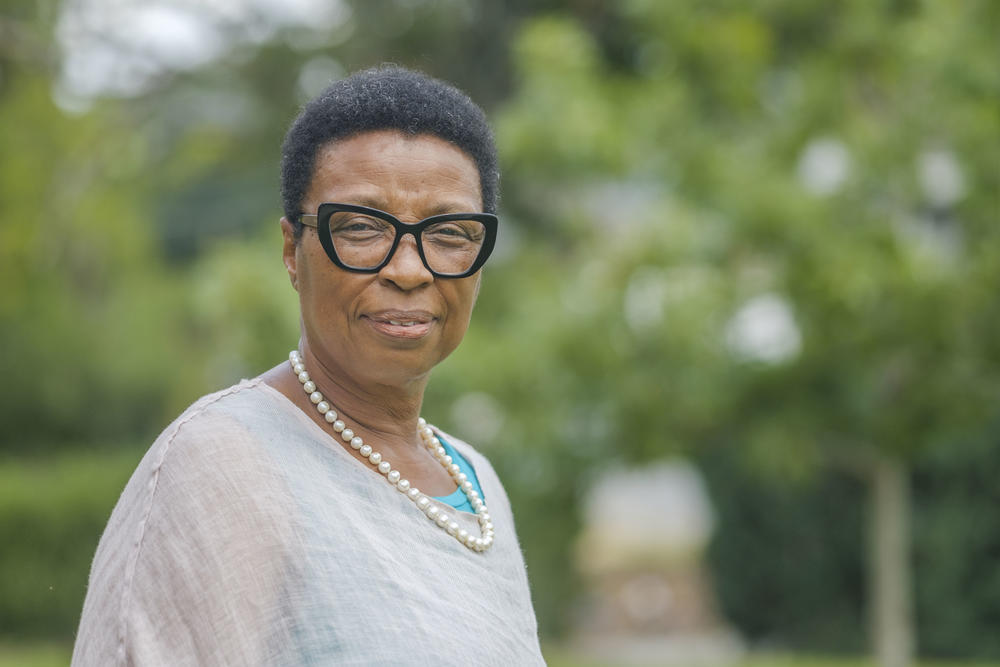
Caption
Mental health counselor Gloria Cissé facilitated the first Macon forum on solutions to violence. She has advice for those attending the second: "Come not looking to win, but to look for solutions that benefit all of us," she says.
Credit: Grant Blankenship / GPB News

